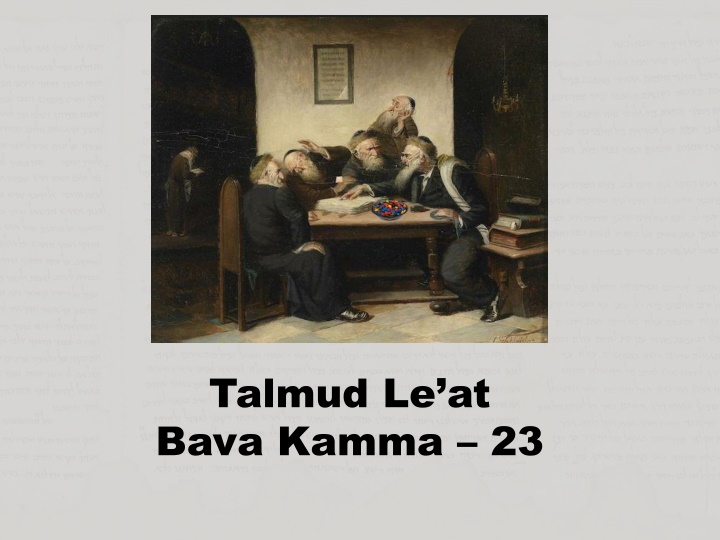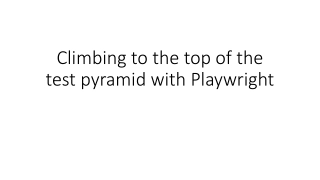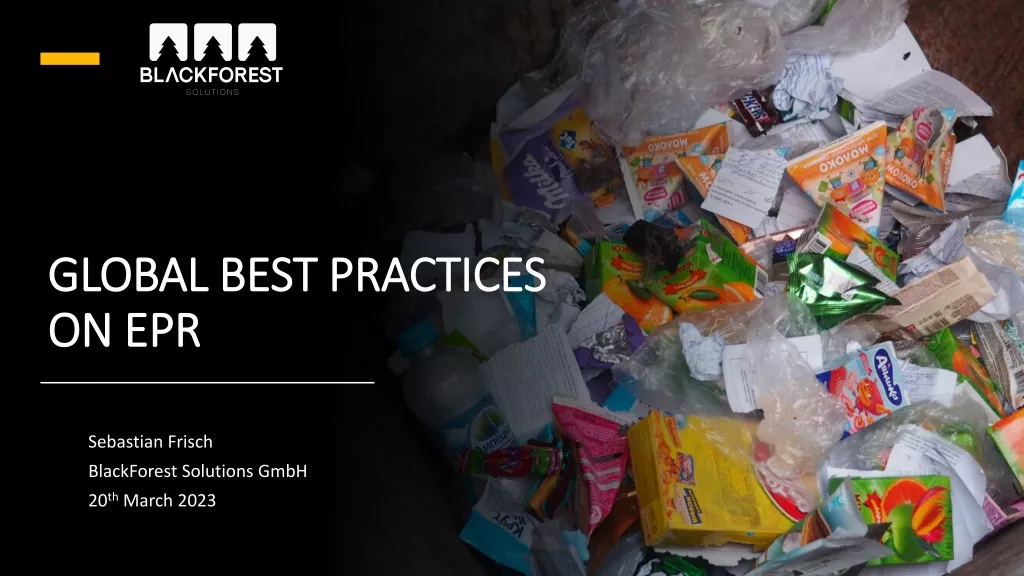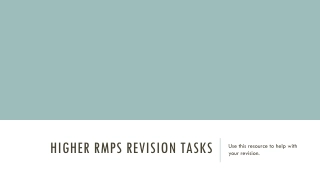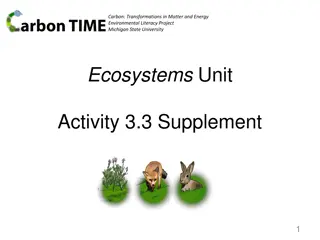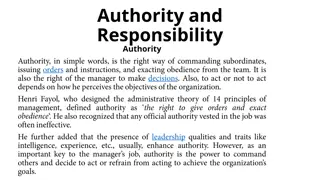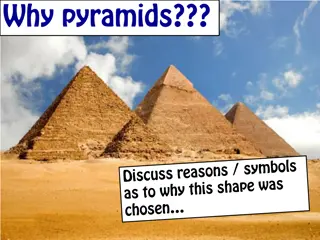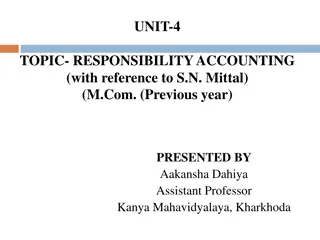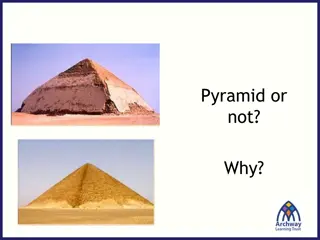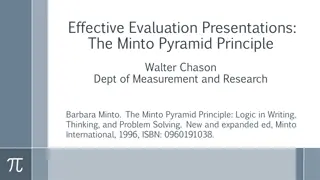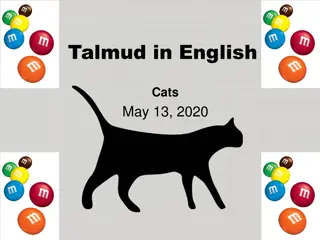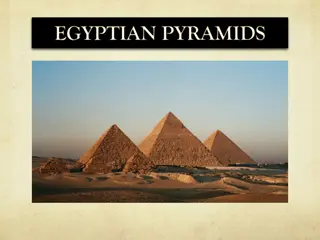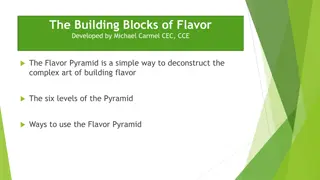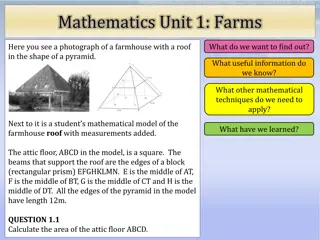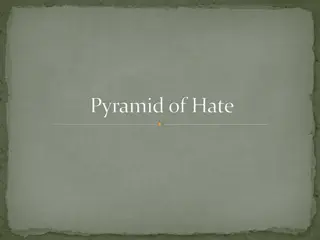Review of Talmud Leat Bava Kamma 23 and Pyramid of Responsibility
In this detailed review, various concepts from Talmudic teachings are explored, focusing on the distinctions between Tam and Mu'ad, half vs full damages, and the nuances of responsibility in different scenarios. The discussions delve into intricate legal interpretations and debates, shedding light on principles of justice and liability.
Download Presentation

Please find below an Image/Link to download the presentation.
The content on the website is provided AS IS for your information and personal use only. It may not be sold, licensed, or shared on other websites without obtaining consent from the author.If you encounter any issues during the download, it is possible that the publisher has removed the file from their server.
You are allowed to download the files provided on this website for personal or commercial use, subject to the condition that they are used lawfully. All files are the property of their respective owners.
The content on the website is provided AS IS for your information and personal use only. It may not be sold, licensed, or shared on other websites without obtaining consent from the author.
E N D
Presentation Transcript
Talmud Leat Bava Kamma 23
Review The Pyramid of Responsibility Tam vs Mu ad o Unusual Usual o Half vs Full Damages Pebbles o Half damages Halacha k Moshe MiSinai o Sumachus Full Damages Distinctions o Force vs Body o Direct vs Indirect o Start vs Finish 2 Talmud Le'at - 23
Bava Kamma 18a , : ? Rava asked: Half damages pebbles, from the body does he pay or from the best does he pay? 3 Talmud Le'at - 23
Mishnah 1:5 ? What is the difference between Tam and Mu'ad? The Tam pays half-damages from its own body and the Mu'ad pays full damages from the best property 4 Talmud Le'at - 21
Bava Kamma 18a ? From the body he pays because we do not find half damages that are paid from the best, or perhaps from the best he pays because we do not find in a usual way that he pays from its body? 5 Talmud Le'at - 23
Bava Kamma 18a " " : , , " ? : Come and hear: "Hopping is not mu'ad. Some say: It is mu'ad" Hopping, is that what you really mean? Rather, must it not be hopping to fly and this is what they are disputing: The one who holds that it is not mu'ad says that from the body he pays and the one who holds that it is mu'ad says that from the best he pays 6 Talmud Le'at - 23
Bava Kamma 18a No, they are disputing the same thing as Sumachus and the rabbis 7 Talmud Le'at - 23
Bava Kamma 18a : " , ? Come and hear: If a dog takes a loaf and went to a stack and eats the loaf and sets fire to the stack, on the loaf he pays full damages and on the stack he pays half damages What is the reason? Is it not because it is pebbles? And they taught on it: He pays half damages from the body 8 Talmud Le'at - 23
Bava Kamma 18a ? ? , ' And can you understand? According to R. Elazar, do we find full payment from the body? 9 Talmud Le'at - 23
Bava Kamma 18a , , ' Rather, a case where it acted in an unusual manner in handling the coal, and R. Elazar holds like R. Tarfon, who said for unusual damage done by the Horn on the damaged party's premises, he pays full damages 10 Talmud Le'at - 23
Bava Kamma 18a ! ? " But this is not so! What is the reason you establish it as R. Tarfon? Since he pays full damages 11 Talmud Le'at - 23
Bava Kamma 18a ; " " R. Elazar holds like Sumachus who says pebbles, he pays full damages; and holds like R. Yehuda who says that the Tam portion remains in its place and when it taught "from its body", it referred to the Tam portion 12 Talmud Le'at - 23
Bava Kamma 18a : ? R. Sama the son of R. Ashi said to Ravina: Say that you have heard that R. Yehuda said this about a Tam that became a Mu'ad But a Mu'ad from the beginning, have you heard him? , 13 Talmud Le'at - 23
Bava Kamma 18b , , Rather, when R. Elazar said he pays full damages, it was a case where it became mu'ad And this is what they are disputing: One master holds that there is a mu'ad for pebbles, and one master holds that there is no mu'ad for pebbles 14 Talmud Le'at - 23
Bava Kamma 18b : , , ; But for that which Rava asked: Is there such a thing as mu'ad for pebbles, or is there no such thing as mu'ad for pebbles? If the Rabbis, there is no such thing as mu'ad for pebbles; if R. Elazar, there is mu'ad for pebbles 15 Talmud Le'at - 23
Bava Kamma 18b : Rava could say to you: I was asking my question about the Rabbis who disagree with Sumachus, but here both the Rabbis and R. Elazar hold the view of Sumachus who says that pebbles pay full damages 16 Talmud Le'at - 23
Bava Kamma 18b ? What is the reason the Rabbis say half damages? It was unusual and he was not mu'ad; and they are arguing about the dispute between R. Tarfon and the Rabbis 17 Talmud Le'at - 23
Bava Kamma 18b ? ' ? . Say that you have heard that R. Tarfon holds full damages, have you heard that from the body? Yes. From where does he derive it? From Horn in the public domain It is sufficient for the derived law to be the same as the source law 18 Talmud Le'at - 23
Talmudic Terminology It is sufficient for the derived law to be the same as the source law But the LORD said to Moses, If her father spat in her face, would she not bear her shame for seven days? Let her be shut out of camp for seven days, and then let her be readmitted. 19 Talmud Le'at - 23
Bava Kamma 18b " " ? " " " " , ? " " " But does not R. Tarfon agree with "it is sufficient"? When does he not agree with "it is sufficient"? When it contradicts an "all the more so" Where it does not contradict an "all the more so", he does hold by "it is sufficient" 20 Talmud Le'at - 23
Talmudic Terminology "The Body" Let us now return to the statement itself 21 Talmud Le'at - 23
Bava Kamma 18b : ? ? The body: Rava asked: Is there such a thing as mu'ad in Pebbles, or is there no such thing as mu'ad in Pebbles? Do we compare it to Horn or perhaps it is a secondary of Foot? 22 Talmud Le'at - 23
Bava Kamma 18b : " : ? " Come and hear: "Hopping is not mu'ad. Some say: It is mu'ad" Hopping, is that what you really mean? Rather, must it not be hopping to fly Is this not a case where it did this three times and this is what they are disputing: One master holds that there is mu'ad and one master holds that there is no mu'ad 23 Talmud Le'at - 23
Bava Kamma 18b ; , No, it happened only once; and they are arguing about the dispute between Sumachus and the rabbis 24 Talmud Le'at - 23
Bava Kamma 18b : " : Come and hear: an animal drops excrement into dough R. Yehuda says that he pays full damages and R. Elazar says he pays half damages Is this not a case where it did this three times and this is what they are disputing: One master holds that there is mu'ad and one master holds that there is no mu'ad? 25 Talmud Le'at - 23
Bava Kamma 18b ; , No, it happened only once; and they are arguing about the dispute between Sumachus and the Rabbis 26 Talmud Le'at - 23
Bava Kamma 18b ? But is this not unusual? The animal was confined 27 Talmud Le'at - 23
Bava Kamma 18b " " Then R. Yehuda should say that the halakhah is in accordance with Sumachus and R. Elazar should say that the halakhah is in accordance with the Rabbis He needed to teach excrement, for otherwise you might have thought that since these come from its body, it is like its body He teaches us 28 Talmud Le'at - 23
Bava Kamma 18b : : , : Come and hear: Rami b. Ezekiel taught: A rooster put its head into an empty vessel of glass and crowed and broke the vessel, he pays full damages But R. Joseph said that in the House of Rav they say: A horse that neighs or a donkey that brays and breaks vessels, he pays half damages Is this not a case where it did this three times and this is what they are disputing: One master holds that there is mu'ad and one master holds that there is no mu'ad 29 Talmud Le'at - 23
Bava Kamma 19a , ? No, it did it only one time, and the dispute is that between Sumachus and the Rabbis But is it not unusual? There are seeds there 30 Talmud Le'at - 23
Bava Kamma 19a : ? R. Ashi asked: is there an unusual way for pebbles for one quarter damages or no unusual way for pebbles for quarter damages? 31 Talmud Le'at - 23
Bava Kamma 19a : ? ; Resolve this from Rava; for Rava asked: Is there mu'ad for pebbles or is there not mu'ad for pebbles? By implication there is no unusual 32 Talmud Le'at - 23
Bava Kamma 19a " " , Perhaps Rava means "if you suppose" If you suppose there is no unusual, is there mu'ad or not mu'ad? Let it stand 33 Talmud Le'at - 23
Bava Kamma 19a ? : ? R. Ashi asked: the force of its force, according to Sumachus? Is it like its force or not? Did he learn a tradition and interpret it to a force of its force or perhaps did he not learn such a tradition at all Let it stand 34 Talmud Le'at - 23
Talmudic Terminology Teiku - "Let is stand" The Tishbite (Elijah) will answer all questions and problems 35 Talmud Le'at - 23
